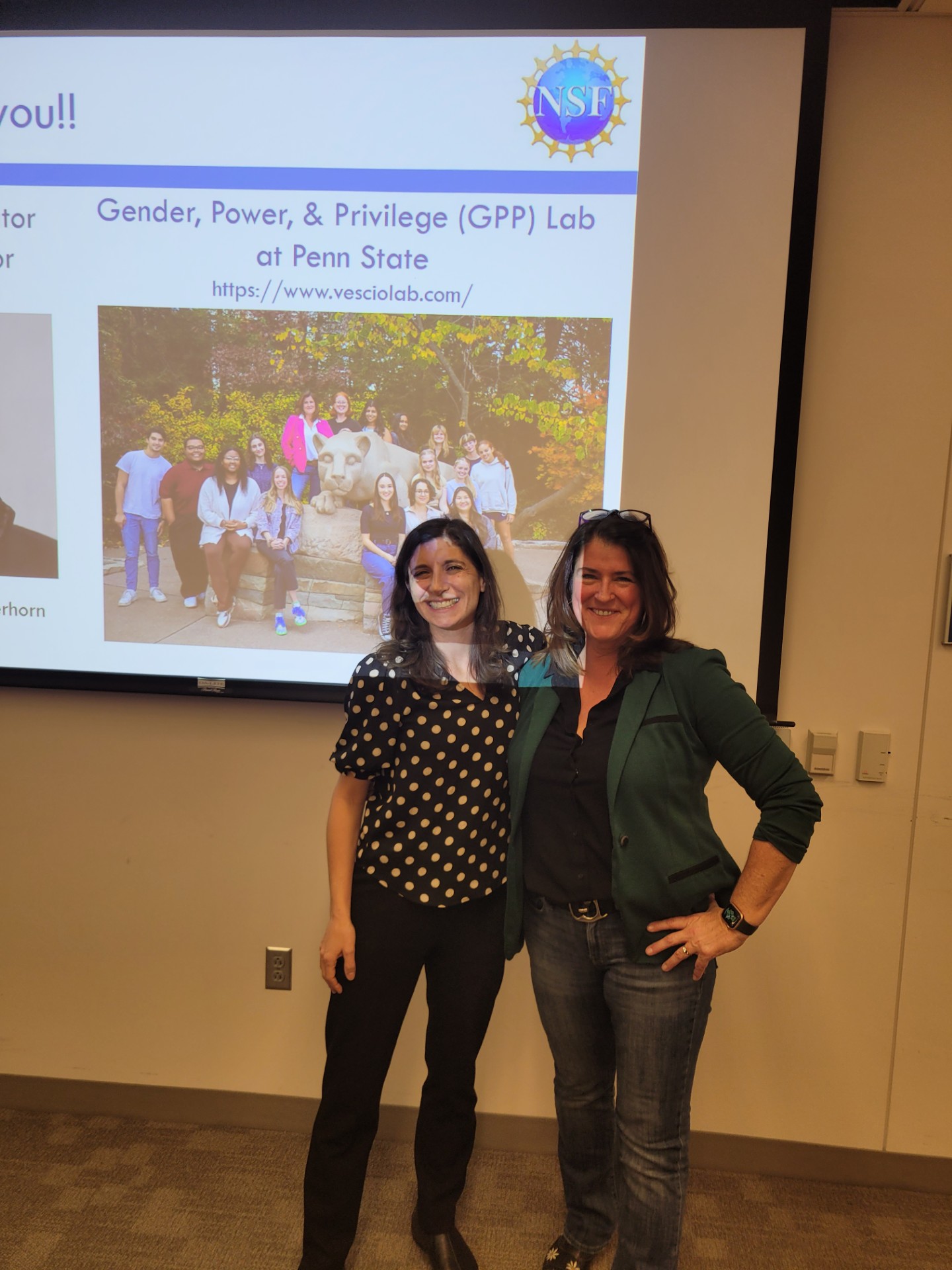
Penn State’s Consortium on Moral Decision-Making and Moral Psychology Research Group recently hosted a conference to highlight interdisciplinary research on moral and ethical decision-making.
According to consortium director Daryl Cameron, Sherwin Early Career Professor in the Rock Ethics Institute and associate professor of psychology at Penn State, the aim of the conference was to stimulate conversation and collaboration across disciplines, including psychology, communications arts and sciences, anthropology, and business.
“We brought together the Moral Psychology Research Group with members of the Consortium on Moral Decision-Making located at Penn State and other universities,” Cameron said. “Echoing a previous conference I organized in 2017, we were able to bring together a diverse set of researchers to talk about ethics and morality and find points of connection to advance the social scientific study of these topics.”
The conference drew many philosophers and early career researchers from universities such as Duke, Purdue, William and Mary, UNC Chapell Hill, Cornell, Carnegie Mellon, and Indiana University, as well as virtual attendees from across the country and world.
“We hosted and recorded several digital roundtables, which involved short conversations among philosophers and psychologists, as well as roundtables involving graduate students discussing their views on the future of moral psychology,” Cameron explained. “It was a productive conference, inspiring many conversations between faculty and students from across disciplines and across universities.”
Keynote speakers included Penn State alumna Taya Cohen, professor of organizational behavior and business ethics, Carnegie Mellon University; and Larisa Heiphetz Solomon, associate professor of psychology, Columbia University. Recorded sessions are linked to the presenter’s name and are availablehere.
“There were also virtual talks from scholars at Carnegie Mellon and Yale, and a fun session of student flash talks, including Penn State social psychology students Josh Wegner and Becca Ruger,” Cameron said.
The conference continued on Saturday with a trio of talks on virtue from Lisa Silvestri in Communication Arts and Sciences, Patrick Lee Plaisance in the Bellisario College of Communications, and Jessie Sun from the Psychology Department at Washington University in St. Louis, plus a panel of all three of them talking together afterward (recording here).
During the second session on groups and morality, there was a trio of talks by Meltem Yucel from Duke, Simone Tang from Cornell, and Kyle Law from Boston College, plus a panel between the three of them (recording here). That afternoon, there were virtual talks by Chris Olivola (Carnegie Mellon) and James Floman (Yale University), and a set of flash talks by graduate students, including Joshua Wenger and Becca Ruger from Penn State Psychology as well as Jerry Richardson (Cornell) and Jillian Meyer (Indiana).
The conference wrapped up on Sunday with a session on person perception, with presentations by Evan Bradley (Psychology and Linguistics Penn State Brandywine), Sojung Baek (Penn State Anthropology), and Terri Vescio and Sean Laurent (both from Penn State Psychology).
“I was particularly impressed by the way the talks complemented each other in this session, many of them relying on data from cross-cultural samples around the world,” Cameron said. “After each session we recorded roundtables where philosophers and psychologists talked about how their work can inform each other’s. I also convened two roundtables of graduate students from Penn State, Duke, University of North Carolina, Cornell, and Carnegie Mellon to discuss the future of moral psychology and where they see the value of interdisciplinary conversations.”
The moral philosophy-psychology roundtable recordings – which included philosophers from Purdue University and William and Mary and psychologists from Boston College and CUNY Brooklyn, can be found here and here, while the graduate student roundtable recordings, which included students from Penn State, Cornell, UNC Chapel Hill, and Carnegie Mellon, are here and here.
For more information and to get involved in the Consortium on Moral Decision-Making, contact Cameron.
The consortium is being supported by the Penn State’s Social Science Research Institute and The Rock Ethics Institute in the College of the Liberal Arts, with additional funding from the McCourtney Institute for Democracy, Department of Philosophy, and Department of Psychology.
